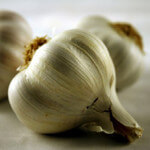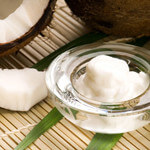 In the field of nutrition, it is common for natural health researchers to disagree with each other. Whether it’s about the benefits of a vegetarian diet or the potential health risks of whole grains, you’re going to find conflicting opinions on various sides.
In the field of nutrition, it is common for natural health researchers to disagree with each other. Whether it’s about the benefits of a vegetarian diet or the potential health risks of whole grains, you’re going to find conflicting opinions on various sides.
However, one area in which virtually all health researchers agree on is that teas – whether they be herbal, black or otherwise – are good for you. This is even the case with many commercial health sources, who often recommend certain teas to treat common ailments, such as insomnia, low moods, gastrointestinal complaints, and compromised immunity. In this article, however, we’ll take a look at three teas that are proven to assist with one of the most desirable benefits of all: Weight loss.
Hibiscus Tea
Hibiscus tea, which is made from the magenta-colored sepals of the West African Hibiscus sabdariffa plant, is a popular tea with a distinct, tart flavor. Rich in beneficial flavonoids and anthocyanins, hibiscus tea is proven to help reduce blood pressure in patients with type 2 diabetes as well as patients with prehypertension and mild hypertension.
However, a study published in The Journal of Alternative and Complementary Medicine has also found that hibiscus extracts can block adipogenesis (fat cell development) in cells. According to the researchers, cells treated with hibiscus extracts experienced a significant weakening of “key adipogenic transcription factors” when compared to the control cells, which were not treated with hibiscus.
Yerba Mate Tea
Popular in South America, yerba mate tea is a beverage made from the dried leaves and twigs of the yerba mate plant. It is one of the most nutrient-dense teas around and, according to Fitday.com, contains approximately 90 percent more disease-fighting antioxidants than green tea. Moreover, yerba mate is high in three xanthines, namely caffeine, theobromine, and theophylline, which can stimulate our nervous system and relax muscles.
Yerba mate has enjoyed a lot of research in recent years, including research into its alleged weight loss properties. Perhaps the most robust of these studies was published in the journal Laboratory Animal Research in March 2012, which sought to determine whether yerba mate extracts could treat obesity and diabetes in mice fed a high-fat diet.
The results were positive: Yerba mate had a beneficial effect on lipid metabolism in the mice, thus reducing their serum triglycerides, serum cholesterol, and glucose concentrations. “In conclusion, yerba mate can potentially be used to treat obesity and diabetes,” wrote the authors.
White Tea
White tea is made from the leaves and buds of the Camellia sinensis plant. It is the least processed of all teas, and is characterized by its subtle taste and minimal caffeine content. Like black and green teas, which are also derived from the same plant, white tea is rich in catechins, a group of polyphenols that are known to reduce cholesterol, improve blood vessel function, and lower blood pressure.
White tea is also proven to inhibit fat cell development in cells. A study published in the journal Nutrition & Metabolism in 2009, for instance, showed that “white tea extracts significantly decreased triglyceride incorporation during adipogenesis in a dose-dependent manner” in human cells. The researchers also discovered that white tea extracts stimulated lipolysis (the breakdown of lipids), suggesting that drinking white tea could inhibit fat storage.






